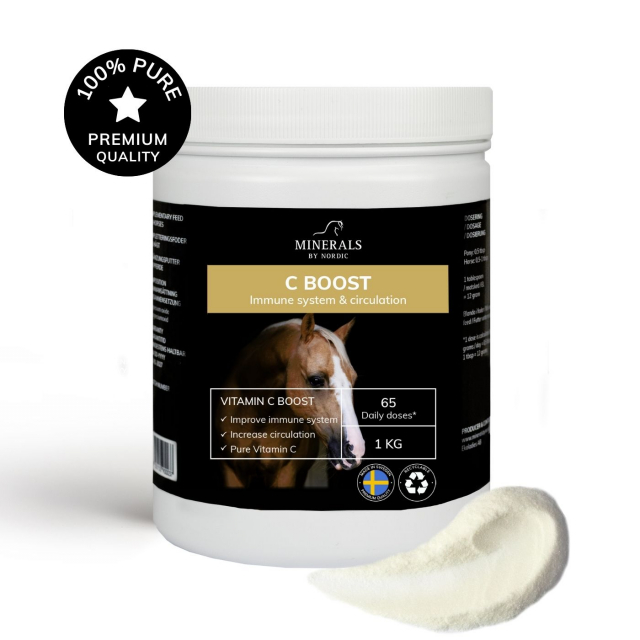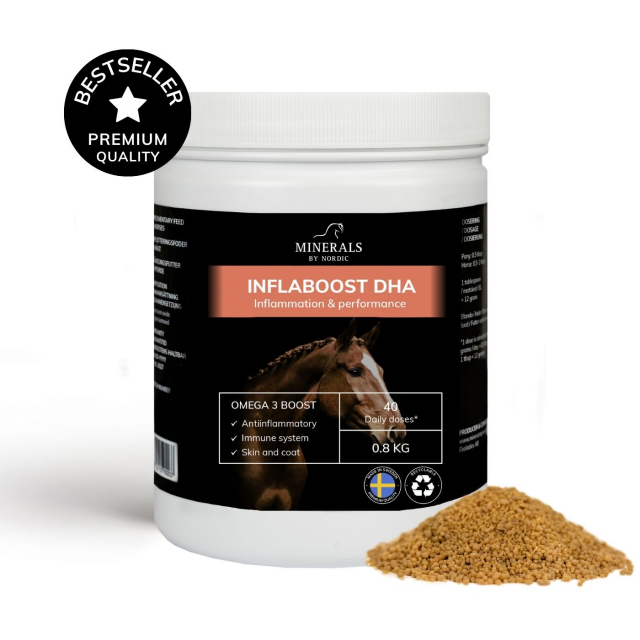
The horse's airways - Tips for a healthy stable environment
Tips for improving the stable environment and promoting healthy airways
A healthy stable environment is crucial for preventing respiratory problems in horses.Choose dust-free bedding and hay: Use dust-free or vacuumed hay and select bedding materials that do not produce dust, such as peat or high-quality shavings. Store hay and bedding in a separate building or at a distance from the stable to minimize dust spreading.
Regular cleaning: Keep the stable clean by regularly mucking out the stalls and removing manure and urine. This reduces the amount of ammonia and other harmful gases released in the stable.
Improve ventilation: Ensure the stable has adequate ventilation by installing ventilation systems or using windows and doors to create a cross-draft. It's important that fresh air can circulate, which reduces the concentration of dust and ammonia.
Control humidity and temperature: Try to keep the stable cool and dry. Use dehumidifiers if needed and avoid using steamers near hay or bedding, as they can increase humidity levels and promote mold growth.
Feed horses on the ground or use hay racks: Feeding horses on the ground or using hay racks reduces the amount of dust they inhale while eating. Avoid throwing hay directly into the stalls, as this can release large amounts of dust.
Use air purifiers: In stables with poor ventilation or where dust is a constant issue, air purifiers can be an effective way to reduce the number of particles in the air. Choose an air purifier designed to remove dust, spores, and other small particles.
Check for mold: Regularly inspect hay, bedding, and the stable environment for signs of mold. If mold is detected, remove and replace the affected material immediately and thoroughly clean the area.
By understanding and managing the various environmental factors that can affect horses' airways, horse owners can create a safe and healthy environment for their horses. Regular monitoring and proactive measures are key to keeping horses healthy and reducing the risk of respiratory diseases. By following these tips and closely monitoring the stable environment, you can help promote your horse's health and well-being, resulting in a happier and more productive horse.
 SWE
SWE



 ENG
ENG NO
NO AX
AX DE
DE